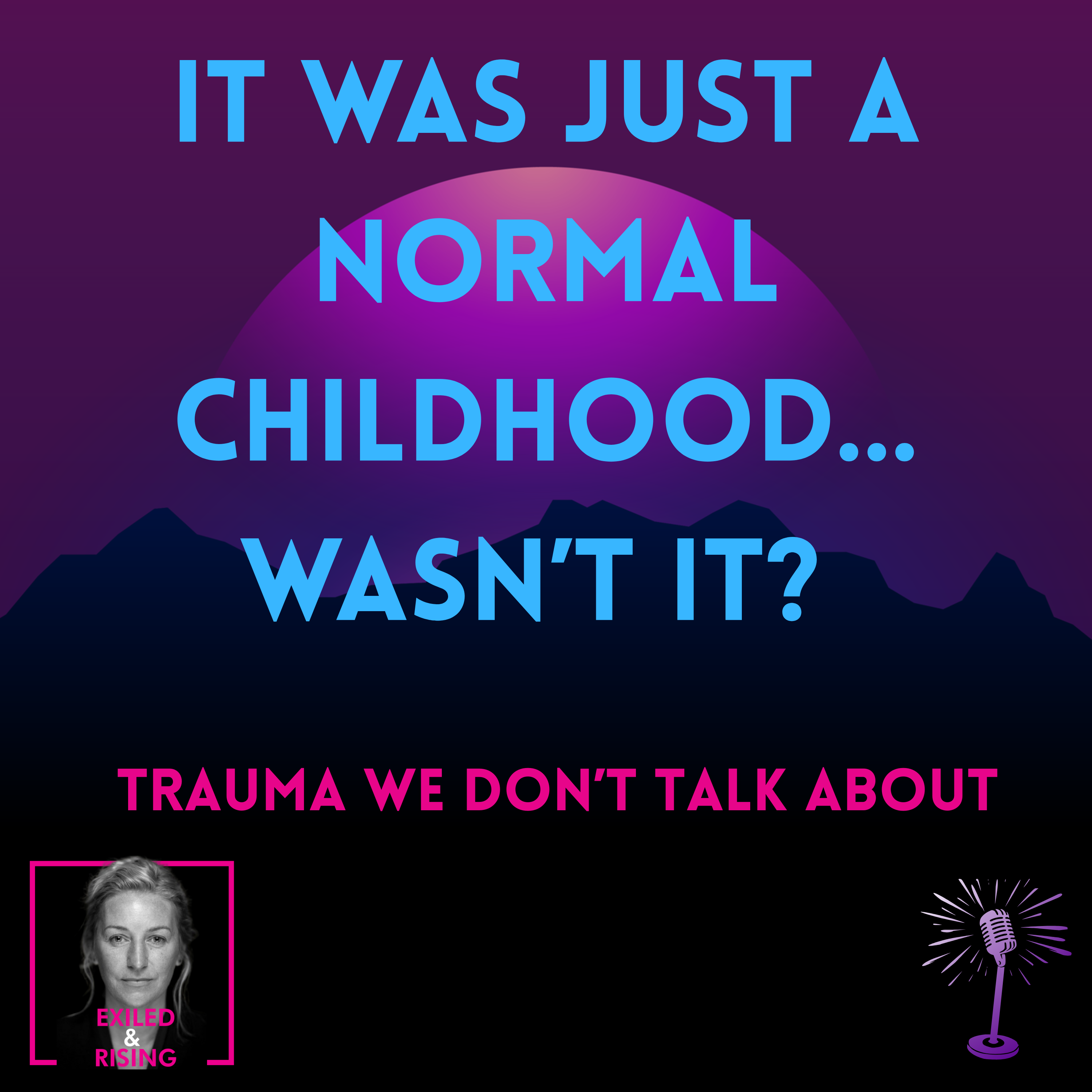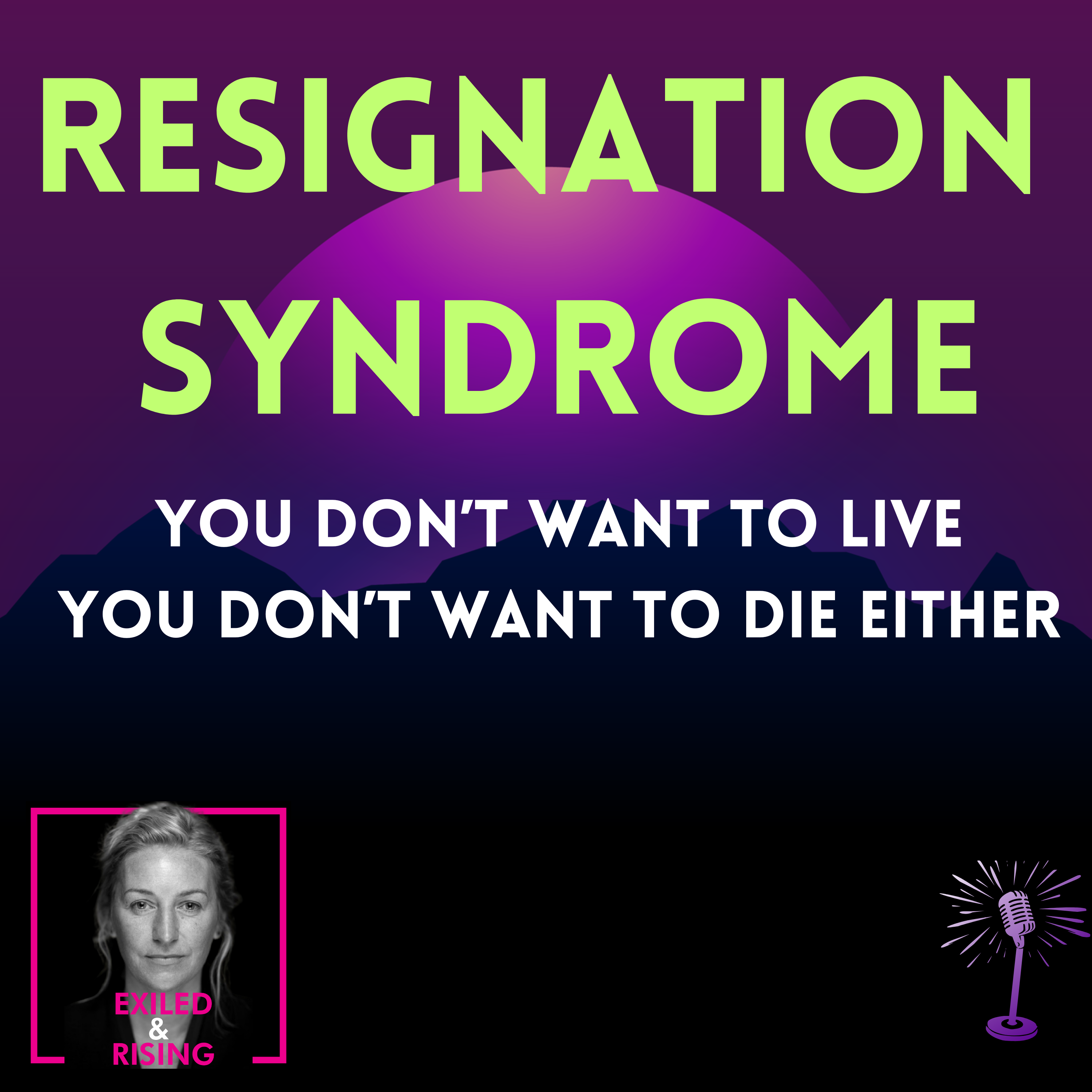Show Notes
You don’t owe forgiveness to anyone who hurt you. In this unapologetic and deeply validating episode, Ana Mael dismantles the harmful myth that forgiveness is a requirement for healing. With clarity and compassion, Ana speaks directly to marginalized, BIPOC, and harmed individuals who’ve been told—explicitly or subtly—that their healing must include forgiving those who caused their pain.
Instead, Ana offers a radical truth: you do not owe anyone forgiveness—especially if doing so betrays your dignity, survival, or truth.
This radical truth reclaims your healing from shame, spiritual pressure, and performative peace.
Social, Cultural & Political Significance
This episode exposes how the expectation to forgive is often a covert mechanism of control, especially when applied to BIPOC, marginalized, and oppressed individuals. Ana Mael challenges the dominant narrative with this unapologetic truth:
“You do not owe anyone forgiveness if it doesn't feel right for you.”
This is not just a personal declaration—it is a political one.
Racialized, Gendered, and Class-Based Expectations
Across cultures, marginalized bodies have been forced to carry the burden of peacekeeping. They’re expected to “rise above,” to be spiritual, graceful, non-reactive—even in the face of dehumanization. But as Ana says:
“This is another white privilege thing we are facing. Forgive… so I feel better. Forgive… so you don’t become a potential threat.”
Forgiveness, in this context, is not healing. It’s containment.
-
Psychological Impact: Survivors internalize the message that their pain is inconvenient, their anger dangerous, and their boundaries selfish.
-
Behavioral Adaptations: This can result in chronic people-pleasing, freeze responses, emotional repression, and dissociation. Over time, these adaptive responses erode self-trust and the ability to recognize harm.
Forgiveness as a Tool of Power Preservation
“Forgiveness has become more and more of a tool for privileged ones, for entitled ones... to overlook injustices done to minorities.”
This insight cuts to the heart of power dynamics. Ana exposes how forgiveness becomes another “respectability test,” used to protect perpetrators and institutions while bypassing the survivor’s reality.
-
In churches, wellness spaces, and families, survivors are told to forgive not for their healing, but to ease the discomfort of others.
-
Ana names this clearly:
“Many times people tell you to forgive so they can feel better. It is for their convenience, not yours.”
Spiritual Bypassing and Colonized Healing
“Many spiritual communities betray our healing journey.”
Ana dismantles spiritual bypassing as a form of emotional gaslighting wrapped in sacred language.
-
Westernized, appropriated spiritual teachings often turn forgiveness into a status symbol of moral superiority, where “if you forgive, you are evolved.”
-
But this creates moral hierarchy and re-traumatizes those still in the process of metabolizing their truth.
As Ana warns:
“If you're not ready or if you choose not to forgive, that relational field is not safe, and healing is not happening.”
❤️ Support the mission & keep the podcast alive and ad FREE: Donate
Implications for Somatic Trauma Recovery
This episode is a call to reclaim embodied justice as a trauma-healing strategy.
Forgiveness Without Safety Is a Nervous System Betrayal: Ana reminds us that healing occurs “when your body, your mind, your heart, and your nervous system attune in relational resonance to someone who is safe.”
Unforgiveness as Boundary: Choosing not to forgive is not a failure. It’s an act of nervous system integrity and trauma-informed self-protection.
“If you feel forced and shamed into forgiving your perpetrator... if it feels like you are betraying your inner child... I’m truly sorry.”
This grief is sacred, not pathological. Somatic healing must make space for it.
Implications for Somatic Trauma Recovery
This episode is a call to reclaim embodied justice as a trauma-healing strategy.
Forgiveness Without Safety Is a Nervous System Betrayal: Ana reminds us that healing occurs “when your body, your mind, your heart, and your nervous system attune in relational resonance to someone who is safe.”
Unforgiveness as Boundary: Choosing not to forgive is not a failure. It’s an act of nervous system integrity and trauma-informed self-protection.
“If you feel forced and shamed into forgiving your perpetrator... if it feels like you are betraying your inner child... I’m truly sorry.”
This grief is sacred, not pathological. Somatic healing must make space for it.
Justice as an Embodied Practice
Ana frames non-forgiveness not as rage or bitterness, but as a generative force for personal and collective transformation:
“Your unforgiveness can be the best catalyst to heal... By honoring self and protecting self and standing up for what was done to you.”
Here, she offers a vision where healing is not dependent on letting go of rage—but on giving it a sacred place in advocacy, storytelling, and boundary-making.
Impact on Mental Health
When forgiveness is coerced: Trauma symptoms intensify. Survivors may feel re-violated by systems claiming to support them.
When forgiveness is chosen freely or rejected with clarity: Survivors often report greater emotional clarity, nervous system regulation, and post-traumatic growth.
This mirrors research showing that voluntary forgiveness can support healing, while pressured forgiveness leads to higher distress, depression, and PTSD symptoms (Wade et al., 2005; Toussaint & Webb, 2005).
Final Truth
“Forgive them. But you don’t need to forgive what was done to you.”
Ana’s words echo what so many trauma survivors have long needed to hear: Forgiveness is not owed. Peace is not performative. Rage is not wrong. Unfrogivness is just when injustice is done.
This episode is a portal into what it means to decolonize forgiveness, reclaim our narratives, and heal on our own terms.
Stay Connected & Support the Show,
Follow, Review, Share!
Ask a question or share your story: VideoAsk
❤️ Support the mission & keep the podcast alive and Ad-Free, Junk-Content-Free Experience – No distractions, no unnecessary content—just focused healing insights.
Donate
From Trauma to Resilience. From Wounds to Resistance!
For deep experiential healing, private community and live trauma healing sessions, visit:
https://www.somatictraumarecoverycenter.com/
Join Premium Membership for deeper dives, distilled micro-lessons and therapy takeaways for this episode.
✔ Keynotes & Detailed Summaries – Concise, research-backed insights extracted from each episode to help you apply lessons directly to your healing journey.
✔ Therapy Takeaways – Actionable insights designed for therapy, journaling, and self-work—cutting straight to the core of trauma recovery.For YOU. For clinicians. For anyone ready to rise.
Meet Your Host: Ana Mael
Ana Mael is a genocide and war survivor, somatic therapist, and founder of the Somatic Trauma Recovery Center. She has dedicated her work to helping survivors reclaim their identity, dignity, and self-trust.
She is the bestselling author of The Trauma We Don’t Talk About—a #1 book in over 10 categories, including Mental Health, Personal Testimonies, and Memoirs.
Ana lives in Toronto, Canada, where she works directly with clients and educates mental health professionals and counsellors on displacement, exile, and war trauma recovery. She leads training programs, provides trauma-informed therapy, and conducts research to bridge the gap between somatic therapy and global crisis trauma care.



